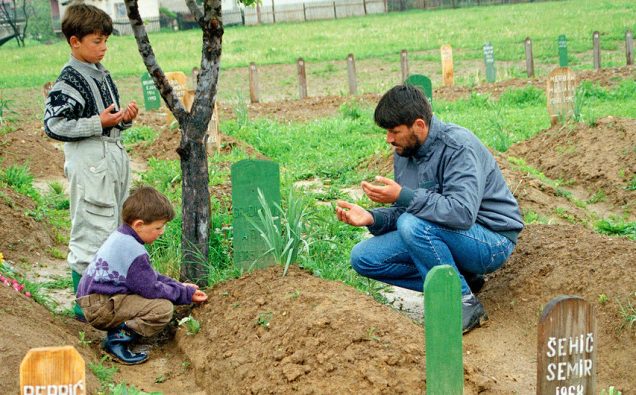
Twenty-five years after the genocide of Bosnian Muslim boys and men at the hands of Serbia-backed forces, peace in Bosnia and Herzegovina remains fragile, the United Nations says while paying tribute to the memory of the victims.
The United Nations has called the 1995 brutal massacre of Bosnians during the fall of Srebrenica – who were fighting for their freedom during the Balkan wars – as the worst atrocity crime in Europe, since the Second World War.
Beginning on July 11, 1995, Bosnian Serb forces commander General Ratko ladić led the murder of approximately 8,000 Muslim men as old as 77 and boys as young as 12 in Srebrenica.
Since then, six Bosnian Serbs, including Mladić and former Republika Srpska President Radovan Karadžić, have been convicted of genocide by the U.N. International Criminal Tribunal for the Former Yugoslavia (ICTY) for the Srebrenica genocide.
According to the International Court of Justice held that “the acts committed at Srebrenica … were committed with the specific intent to destroy in part the group of the Muslims of Bosnia-Herzegovina as such; and accordingly that these were acts of genocide.”
Comemmorating the grim anniversary, Secretary-General of the United Nations António Guterres pledged that the victims will never be forgotten.
“A quarter century ago, the United Nations and the international community failed the people of Srebrenica. As former Secretary-General Kofi Annan said, this failure will ‘haunt our history forever’”, he stated in a video message, that has become a new normal for leaders during the coronavirus outbreak.
“Confronting that past is a vital step towards rebuilding trust.”
Reconciliation, he said, must be underpinned by mutual empathy and understanding.
“It also means rejecting denial of genocide and war crimes, as well as efforts to glorify convicted war criminals.”
The Secretary-General called on people in the region and beyond to counter hate speech, divisive rhetoric, and narratives of mistrust and fear.
“On this somber anniversary, we are reminded that peace in Bosnia and Herzegovina is still fragile”, he said.
“We cannot let up in working towards genuine reconciliation. We owe this to the victims of the Srebrenica genocide, the survivors, the people of Bosnia and Herzegovina, and to all humanity.”
















